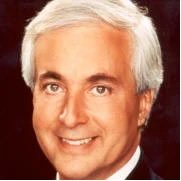The vastness Newton Minow leaves behind
Newton Minow will always be remembered for a 1961 speech in which he described television as a “vast wasteland.” However, late in life he became less concerned about TV’s wastefulness and more troubled by its very vastness.
This item is available in full to subscribers.
Attention subscribers
To continue reading, you will need to either log in to your subscriber account, below, or purchase a new subscription.
Please log in to continue |
The vastness Newton Minow leaves behind
Newton Minow will always be remembered for a 1961 speech in which he described television as a “vast wasteland.” However, late in life he became less concerned about TV’s wastefulness and more troubled by its very vastness.
The legendary former FCC chairman knew a thing or two about television, having studied it for most of his adult life. He died at his Chicago home the other day at 97 without ever reconciling his love-hate relationship with the medium that so profoundly affects our lives.
Minow was actually an inveterate fan of much that TV had to offer, and his real purpose in that infamous speech to the National Association of Broadcasters was to challenge and inspire. “I am in Washington,” he explained, “to help broadcasting, not to harm it; to strengthen it, not weaken it; to reward it, not to punish it; to encourage it, not threaten it; and to stimulate it, not censor it. Above all, I am here to uphold and protect the public interest.”
In conversation with me 60 years after delivering the speech, Minow explained, “Our goal was to enlarge choice for the viewer. When I was at the FCC there were only two-and-a-half commercial networks. Now we have public TV, cable, satellite, pay tv, with almost unlimited choices. It’s a totally different medium.”
Television’s enormous growth—with digital platforms joining the delivery systems Minow mentioned—prompted him to gradually reevaluate his views. “I used to think providing more choice was in the public interest,” he told me, “but I am not sure today.”
In lambasting TV programming in the 1960s, Minow cited “a procession of game shows, formula comedies about totally unbelievable families, blood and thunder, mayhem, violence, sadism, murder, western bad men, western good men, private eyes, gangsters, more violence, and cartoons.” That’s still a reasonable way to summarize much of what’s on today. But modern viewers are also enjoying what many call a second Golden Age of programming.
So, what’s the problem?
“Fractionalization of the audience provides more choice," Minow said, "but we pay a big price. Our country now is much more divided because we do not share the same news or believe the same facts.”
Barack Obama, who awarded Minow the Presidential Medal of Freedom in 2016, praised him for “helping launch the satellites that made nationwide broadcasts possible, cementing presidential debates as a national institution, helping usher in public television, and reminding the media of its obligation to foster a well-informed citizenry.”
But Newton Minow’s good intentions—beginning with the speech that launched his career in public service—were not enough. “Back then,” he told me, “Walter Cronkite was the most trusted man in our country. Who is trusted today?”
Peter Funt’s latest book is “Playing POTUS: The Power of America’s Acting Presidents,” about comedians who impersonated presidents.






